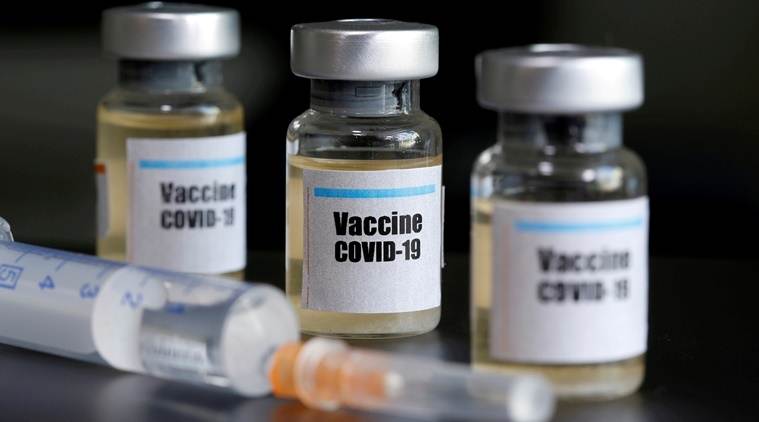 The Council, however, remained silent on the unrealistic timeline and the language used in the letter dated July 2, and sent by ICMR director general Balram Bhargava to the 12 hospitals selected for carrying out clinical trials of Covaxin, a candidate vaccine. (Representational)
The Council, however, remained silent on the unrealistic timeline and the language used in the letter dated July 2, and sent by ICMR director general Balram Bhargava to the 12 hospitals selected for carrying out clinical trials of Covaxin, a candidate vaccine. (Representational)
A day after some of the country’s top scientists and medical experts described as “unreasonable” and “absurd” an ICMR timeline to produce a Covid vaccine “for public health use latest by August 15”, the Council has claimed that its letter to clinical trial sites, which mentioned the date, “was meant to cut unnecessary red tape”.
In a statement issued Saturday, ICMR said: “The aim is to complete these phases at the earliest, so that population-based trials for efficacy could be initiated without delay.”
The Council, however, remained silent on the unrealistic timeline and the language used in the letter dated July 2, and sent by ICMR director general Balram Bhargava to the 12 hospitals selected for carrying out clinical trials of Covaxin, a candidate vaccine.
The potential vaccine is being developed by Bharat Biotech, a Hyderabad-based pharmaceutical company, in partnership with Pune-based National Institute of Virology, an ICMR laboratory. The Sunday Express has learnt that a scheduled virtual meeting Saturday of the principal trial investigators with ICMR and Bharat Biotech was postponed.
In a statement issued Saturday, ICMR said: “The letter by DG-ICMR to investigators of the clinical trial sites was meant to cut unnecessary red tape, without bypassing any necessary process, and speed up recruitment of participants. Just as red tape was not allowed to become a hindrance in the fast track approval of new indigenous testing kits or for introducing in the Indian market potential COVID-19 related drugs, the indigenous vaccine development process has also been sought to be insulated from slow file movement.”
In the letter, Bhargava had written: “It is envisaged to launch the vaccine for public health use latest by August 15, 2020 after completion of all clinical trials… You are strictly advised to fast-track all approvals related to initiation of the clinical trial, and ensure that the subject enrolment is initiated no later than July 7, 2020.”
While approval for clinical trials had been given on June 29, the ICMR chief warned in the letter: “Kindly note that non-compliance will be viewed very seriously.”
The letter has triggered outrage among experts with AIIMS Director Randeep Guleria describing the deadline as “a very challenging and difficult task, considering that we have to look at both efficacy and safety of any vaccine that is introduced”. “Also, if we get the desired results, the other challenge is the process of mass production of the vaccine,” Guleria told this newspaper.
Speaking to Karan Thapar for The Wire, WHO Chief Scientist and former ICMR head Soumya Swaminathan pointed out that “phase-1 trials of ICMR/Bharat Biotech vaccine have not started”.
“It cannot be given to people on August 15…it’s important to follow ethical and scientific guidelines… people must believe rigorous processes have been followed… WHO recommends phase-3 trials should involve 20-30,000 people and could take years,” she said.
Saying that all protocols will be followed in fast-track mode, the ICMR said in its statement: “While issues raised in public domain from time-to-time by commentators are welcome, as they form an important part of feedback loop, the best of India’s medical professionals and research scientists should not be second guessed for their professionalism or adherence to the highest scientific rigour.”
However, in a background note circulated the day it received approval for clinical trials, vaccine developer Bharat Biotech had said that the results of Phase I and Phase II trials would be out only by October. The two phases are yet to be approved by the institutional ethics committees of six of the 12 selected hospitals, a mandatory requirement before the trial can begin.
Contrary to ICMR’s timeline of five-and-a-half weeks, a clinical trial registration for the vaccine states that the duration of the trial will be one year and three months.
“We have very little time. Trials usually don’t happen this fast. They probably want to do everything at once and fast track it,” said Dr Amit Bhate, the trial’s principal investigator at Jeevan Rekha Hospital in Karnataka, which is among the 12 hospitals selected and is looking at a sample size of 200 subjects for Phase I and II.
Another principal investigator, Dr Venkata Rao of Institute of Medical Sciences and SUM Hospital in Odisha, said: “It will depend on the ethical committee’s approval and the human body’s response. Whatever we may want, the human body takes its time to show if the vaccine works or not.”
In the US, Dr Anthony Fauci, the top infectious disease expert, had told the US Congress last month: “I still think there is a reasonably good chance that by the very beginning of 2021, that if we’re going to have a vaccine, that we will have it by then.”
He said the average time it takes to develop a vaccine is seven years. The fastest one, for Zika virus, took a year-and-a-half.
The US has created a collaboration of departments and private players under “Operation Warp Speed” for development. Other vaccines are being developed by University of Oxford, Moderna, Wuhan Institute of Biological Products, and several other organisations and agencies.